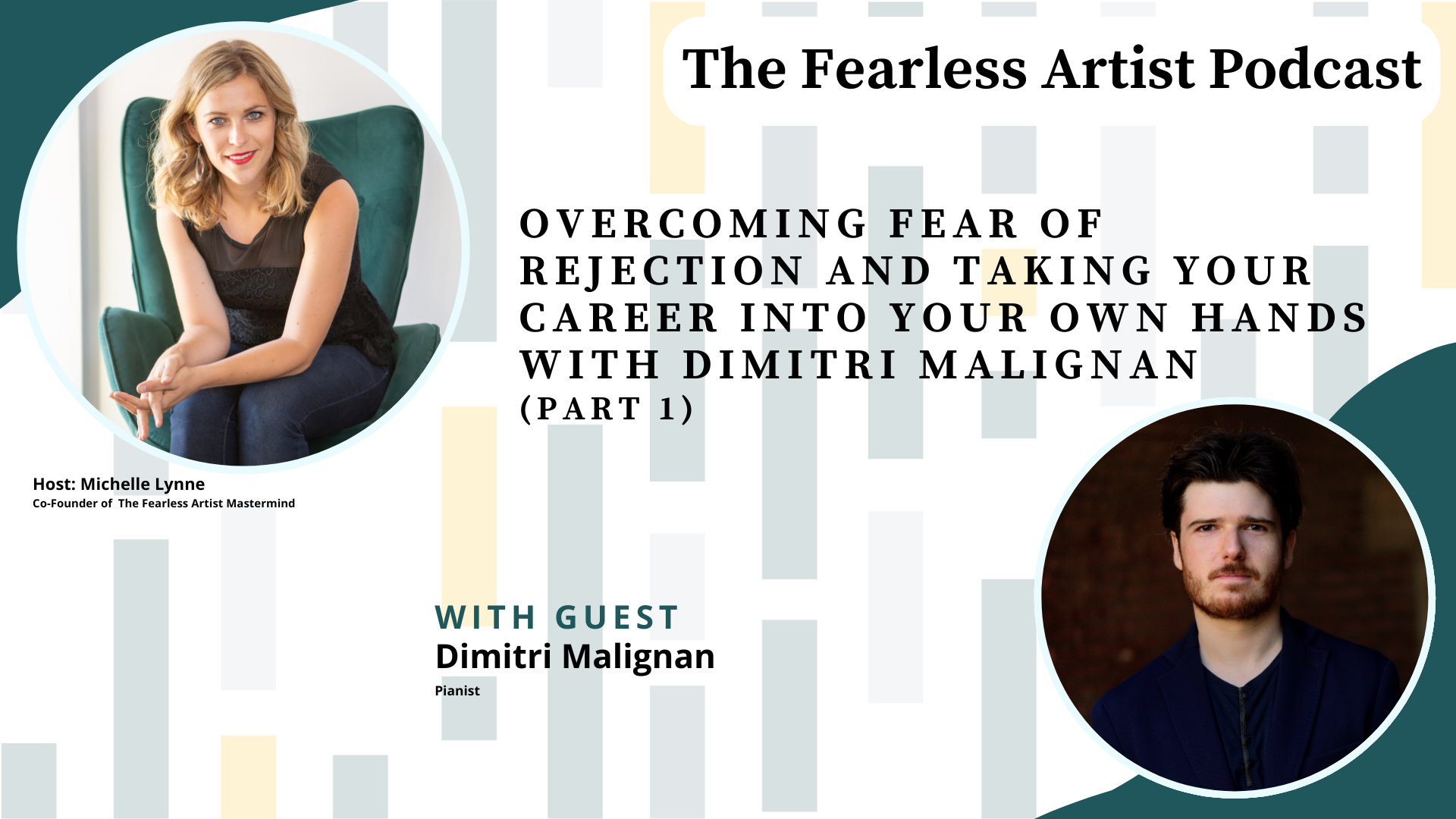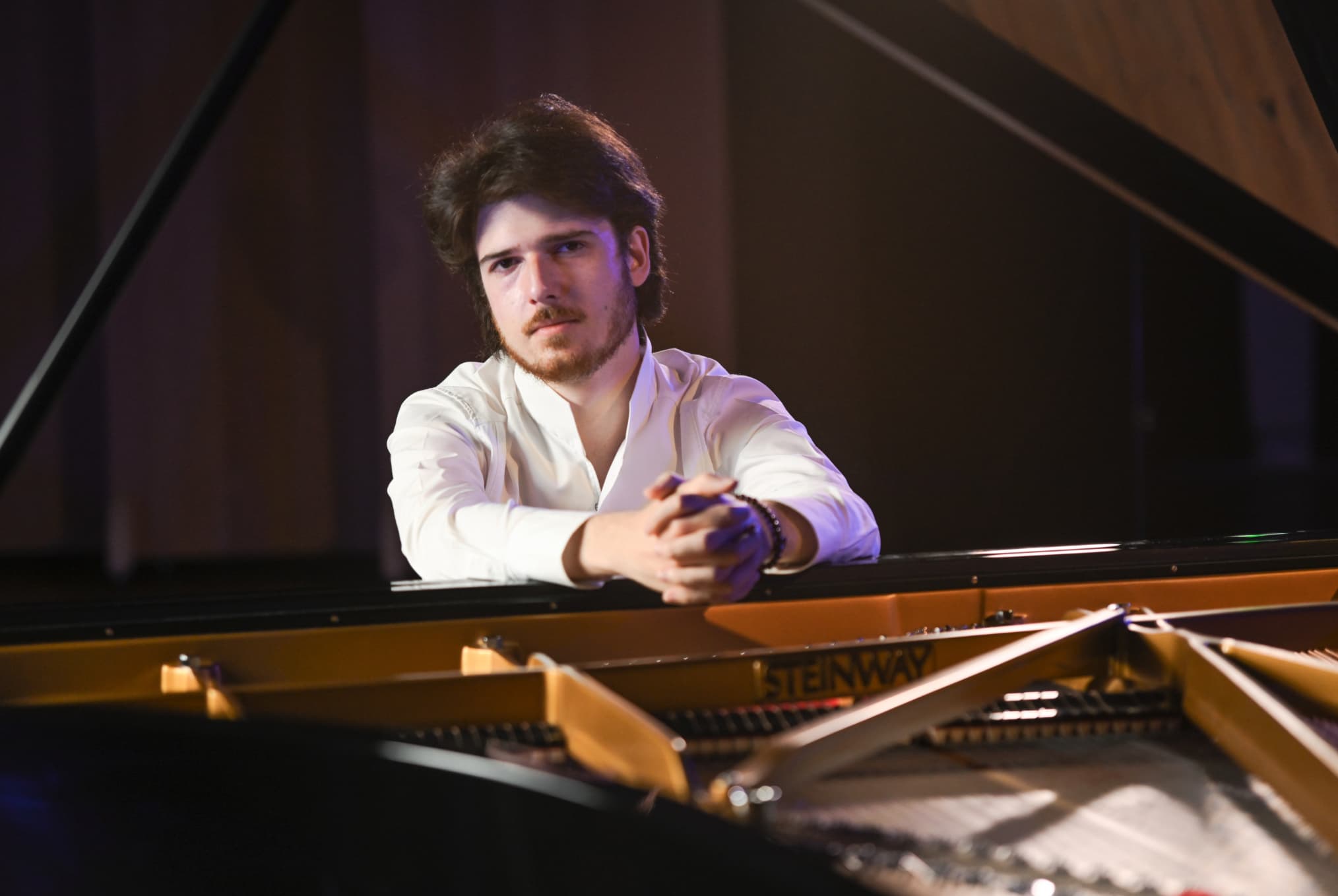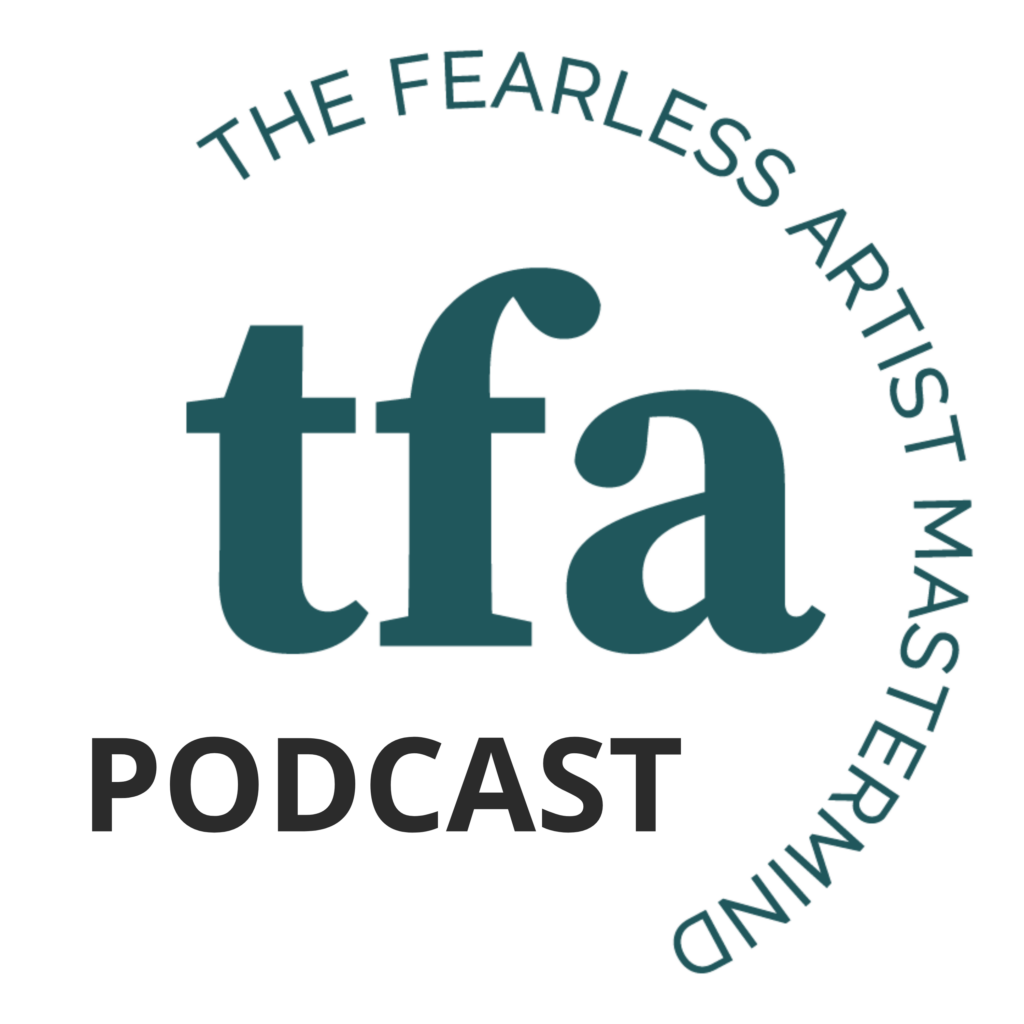Overcoming fear of rejection and taking your career into your own hands with Dimitri MALIGNAN (part 1)

Guest:
Dimitri Malignan
Pianist
Brilliant young French pianist Dimitri Malignan impresses juries, critics, and the public by his level of maturity, his musical intelligence and great sensibility. Winner at only 19 years of age of the Prix Cortot 2017, he was recently awarded in 2021 the 3rd Prize as well as the Audience Award and the Bach Award at the Concours Musical International de Montréal.
Born in Paris in 1998 to architect parents in a music-loving family of Romanian origins, he is the grandson of composer Henry Mălineanu (1920-2000). Dimitri Malignan began his piano studies at the age of 5 with Nicolas Horvath.
His musical upbringing is rich from the teachings of several masters of diverse backgrounds ; his natural curiosity and desire to deepen his education brought him to multiple countries.
Dimitri Malignan’s precocious gifts were spotted by Jean-Paul Sévilla in 2010, whose valuable teaching would be determinant to his formation and musical evolution.
In 2011, Ludmila Berlinskaya – Sviatoslav Richter’s disciple – welcomed him to her class at the Ecole Normale de Musique de Paris ‘Alfred Cortot’. He obtained with highest merits all the Ecole’s diplomas up to the Artist Diploma – Prix Cortot 2017, of which he is the youngest laureate.
From 2016, he completed his musical education at the Conservatory of Amsterdam (the Netherlands) with Naum Grubert. In 2020, at the age of 22, he graduated from the Master program, cum laude.
In 2022, he was selected in the prestigious class of Benedetto Lupo at the Academy of Santa Cecilia in Rome (Italy).
He took part in Masterclasses by renowned pianists such as Angela Hewitt, András Schiff, Jean-Philippe Collard, Boris Giltburg, Boris Berman, Claudio Martínez Mehner, David Fray and Robert Durso. He also followed classes at the Academy of French Music for Piano in Paris (2018-2019) and at the Academy of Music of Pinerolo in Italy (2021-2022). He has been regularly working with Brigitte Bouthinon-Dumas in Paris since 2013.
Laureate of more than 20 international competitions, he notably won the 3rd Prize, as well as the Audience Award and the J.S. Bach Award at the Concours International Musical de Montréal. He also won the 3rd Prize at the Osaka International Music Competition (2009), the 2nd Prize at the ‘American Protégé’ Competition in New-York (2009), the 1st Prize at the ‘Anton García-Abril’ International Piano Competition in Teruel (2011), the 1st Prize at the ‘Mihail Jora’ Music Competition in Bucharest (2016) and the 5th Prize at the ‘Antoine de Saint-Exupéry’ International Piano Competition in Saint-Priest (2019). In 2020, he won a Scholarship Award of the Yamaha Music Foundation of Europe. In 2023, he was awarded the Excellency Prize from the French-Romanian European Summit in Paris.
Dimitri Malignan regularly performs in France and abroad in major venues : Salle Cortot & Salle Colonne (Paris), Salle de l’Institut (Orléans), Opéra de Reims, St Martin-in-the-Fields (London), Konzerthaus (Berlin), De Duif (Amsterdam), Merkin Concert Hall (New-York), Sala Casella (Rome), Romanian Athenaeum and Royal Palace (Bucharest), Philharmonics of Timisoara and Craiova (Romania), Philharmonic of Chisinau (Moldova), Great Hall of the State Conservatory of Tashkent (Uzbekistan), Tchaikovsky Museum in Klin (Russia), but also in Canada, Germany, Denmark, Belgium and Monaco. He was invited to prestigious festivals such as Flâneries Musicales de Reims, Nohant Festival Chopin, Piano en Valois, Nuits du Piano d’Erbalunga, La Clé des Portes, Festival Terraqué, Piano-Folies du Touquet, Festival International Albert-Roussel, and Trasimeno Music Festival. He worked with celebrated orchestra conductors such as Maestros Yoav Talmi, Willem de Bordes, Gian Luigi Zampieri and Clément Mao-Takacs.
Dimitri Malignan is also passionate about promoting unknown music. In 2020, he initiated the “Missing Voices” project, dedicated to Jewish composers who were murdered in the Shoah. After months of research, he organized concerts with this music and produced a documentary movie, and he hopes to get these talented composers out of the shameful oversight that surrounds them. A serious chamber musician, he co-founded in Amsterdam the ‘Bosmans & Beyond Ensemble’ to promote Dutch female composers, and regularly performs with talented musicians.
After having recorded his first CD in 2018 with works of Schumann and Prokofiev (Passavant Music), Dimitri Malignan has published his newest album entitled ‘J.S. Bach Peregrinations’ (Editions Hortus) in March 2022, which received numerous positive reviews.In 2024, he released two chamber music albums, one dedicated to Pál Hermann (Toccata Classics) and another one entitled ‘Elegies and Echoes’, with soprano Elizaveta Agrafenina (Sheva Collection).
Dimitri Malignan has been regularly practicing Qi Gong, Tai Chi and Feldenkrais for many years. He is convinced of their beneficial aspects for a healthy musicianship. He is also passionate about tennis and aviation, and is often to be found training on flight simulators.

Subscribe to The Fearless Artist Podcast
Intro/Outro music by Michelle Lynne • Episode produced by phMediaStudio, LLC
